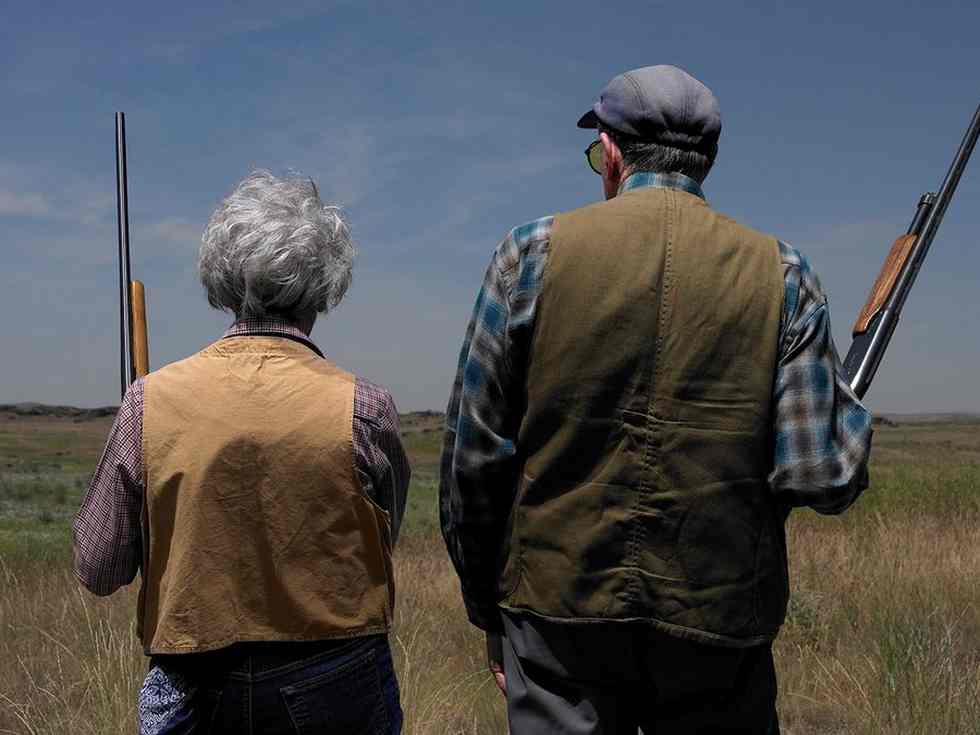
One of many absolute hardest components of getting older is dropping your independence.
Katherine Galluzzi has been training geriatric medication within the Philadelphia space for greater than 25 years and is commonly within the tough place of telling a affected person or their caregiver that it is not protected to drive a automotive.
"We’ve sufferers on hospice who’re very frail, who require round the clock oxygen, and are nonetheless driving right down to Atlantic Metropolis," says Galluzzi, professor and chair of the division of geriatrics on the Philadelphia School of Osteopathic Drugs (PCOM). If the affected person or relations disobey physician’s orders, Galluzzi can fill out a kind with the Pennsylvania Division of Motor Automobiles alerting the authorities that this individual should not be behind the wheel.
"We will not take the keys away. I am unable to disable the automotive. However we will sound the alarm," says Galluzzi, co-author together with her PCOM colleague Ilene Warner-Maron of a December 2018 journal article warning a few lesser-known public well being threat — aged dementia and weapons.
The issue, Galluzzi and Warner-Maron clarify, is that regardless that excessive percentages of aged of us with cognitive impairments are gun house owners, or stay in houses the place there’s entry to a firearm, there isn’t any easy mechanism like a DMV kind that permits physicians to intervene in the event that they really feel just like the weapon poses a transparent hazard to the individual or the general public at massive.
"Arguably, folks can do extra hurt with a gun than they’ll with a automobile," says Galluzzi.
In line with surveys cited by the authors, 60 p.c of households with a person with dementia have been discovered to have a number of firearms. Older People, basically, are extra possible than different age teams to personal or stay with weapons, with 27 p.c of individuals 65 or older proudly owning a number of weapons, and 37 p.c dwelling in a house with a number of weapons.
Within the Journal of the American Osteopathic Affiliation article, the authors inform the tragic story of an 80-year-old man with Alzheimer’s and different continual well being situations dwelling alone in a senior residents condo complicated and receiving each day care from the identical residence well being aide.
"One morning, regardless of having identified this aide for a while, the affected person exhibited elevated confusion and failed to acknowledge the aide," Galluzzi and Warner-Maron write. "He perceived her to be an intruder. She tried to calm him however was unable to reorient him. He turned more and more agitated and, after a number of minutes, he retreated to his bed room. On return to the dwelling space, he shot and killed her."
The concern is that as child boomers enter their mid-70s and 80s, terrible tales like this aren’t going to be remoted circumstances.
"We’ve a considerable amount of older people who find themselves gun house owners, and a considerable amount of gun house owners who’re older and dementing," says Warner-Maron, co-director of PCOM’s grasp’s program in getting older and long-term care administration. "That is the right storm that’s not being addressed and it must be."
Asking Questions About Gun Possession
The million-dollar query, after all, is tackle it. One possibility is to increase so-called "red-flag legal guidelines" to permit physicians and clinicians, not simply relations and regulation enforcement, to petition the court docket for blocking a dementia affected person’s entry to weapons. At present, solely 13 states have these extreme-risk legal guidelines on the books, however docs aren’t included in any of them.
For Galluzzi and Warner-Maron, although, laws is not the highest precedence. The larger problem proper now’s that only a few major care docs and different clinicians like bodily therapists and medical social employees routinely ask sufferers and caregivers whether or not there are weapons in the home. Other than being a politically thorny problem, it is not seen as a precedence given what number of different matters must be coated in time-crunched affected person interviews, together with take a look at outcomes, well being historical past, medicines and extra.
Whereas neither of the authors need to see docs put within the position of police, actually taking weapons out of individuals’s fingers, they each see nice worth in together with fundamental questions on gun possession throughout each go to with sufferers coping with dementia.
"Clinicians, both rightly or wrongly, should not within the place, nor do we’ve the authorized authority to make these determinations," says Galluzzi. "What we will do is increase consciousness, and interact with households and neighborhood businesses that may assist us have an effect on change — to guard not solely the affected person, however everybody across the affected person."
What if It is Your Household Member?
The Alzheimer’s Affiliation has its personal suggestions for households of gun house owners who’ve the illness. Whereas locking up weapons and ammunition individually is a fundamental tenet of gun security, the group says that such measures may not be sufficient to stop tragic accidents. As an alternative, it recommends getting the gun out of the house earlier than the affected person’s decision-making expertise are dangerously compromised. Solutions embrace an "early inheritance" that presents the firearm to a trusted member of the family or donating it to a firearms group or historic society.
Medical doctors and different clinicians can assist households on this course of by together with routine questions on gun possession much like the psychological well being screening instruments at present a part of most annual physicals. Galluzzi and Warner-Maron got here up with a proposed clinician’s guidelines that features questions on gun security and calls out "purple flags" together with cognitive impairment, psychiatric sickness and post-traumatic stress dysfunction.
"What we’re proposing is to start with consciousness, second schooling, and lastly placing these sorts of mechanisms in place so it is extra normalized," says Galluzzi. "It turns into an expectation that we ask."
Now That is a Aid
The controversial "Docs v. Glocks" regulation in Florida, which explicitly forbade physicians from asking sufferers about gun possession or gun security, was struck down in 2017.

